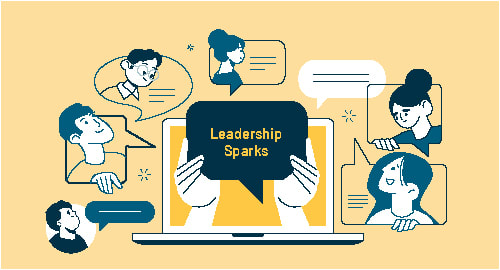Creating an engaged work culture can be a challenge in a hybrid work environment, according to the 700 HR and learning development professionals polled by The Ken Blanchard Companies this past November. Some 67% of respondents agreed with the statement that it is harder to create engaging employee experiences in a hybrid/remote work environment.
The survey paints a picture of organizations in flux—with the war for talent, the challenge of employee retention, and raised expectations of today’s workforce each playing a role.
Respondents cited challenges ranging from the economy to recruiting, retention, dealing with change, and the hybrid work environment.
From an HR perspective, the top open-text responses in descending order were:
- Having enough capacity and resources to meet the needs of workforce development
- Reducing turnover and attrition
- Improving engagement and experience
- Developing culture despite shifts to hybrid work arrangements
Capacity and resources
Resourcing issues tended to break down into three areas—time, senior level buy-in, and money led the pack, with time being the chief concern.
Training in a hybrid world closely followed, with a willingness to make development a priority. Respondents talked about the challenges of asking people to engage in future-focused activities such as skill building when most are having a hard enough time just keeping up with present-day realities.
One respondent indicated “Leaders and learners are becoming more time-poor and do not have learning and development as a priority,” while another shared “Workload is deterring employees from focusing on their development.”
Some respondents asked for senior level buy-in, requesting organizations to "make leadership development a focused business improvement initiative that will be prioritized,” while others identified “Making sure business goal-setters remember that they need people with multiple skills before they achieve the goals” as a challenge.
And finally, respondents cited the challenges of “Retaining and developing talent with limited budget,” and a “lack of resources to develop good content.”
Attracting and retaining talented people
Attracting and retaining skilled and talented people was identified as the second biggest challenge HR professionals were dealing with. Respondents indicated that market changes were negatively impacting the hiring process. The challenge? Attracting the right quality of talent without inflating wages.
In looking for alternatives to simply throwing money at the problem, survey respondents identified several other reasons—other than pay—that people leave organizations. These include not feeling connected to the work, people, or mission of the organization and not having opportunities to grow and develop.
When considering ways to address this issue, respondents looked at the quality of the leaders directly interacting with employees. Across the board, respondents connected quality of leadership with retention and employee experience. The message was clear: leadership matters.
Respondents identified that addressing engagement and experience would require “Balancing mental wellness training and business training for leaders” as well as “Caring for the team health and wellbeing.”
Creating a strong cultural experience
Third on the list was the challenge of creating a strong cultural experience in a hybrid environment. Also mentioned was the recent phenomenon of quiet quitting, with respondents looking at ways to deepen the connection between leader and direct report and rekindle people's desire and purpose.
“Engendering engagement along with attention to the overwhelming stress and wellness issues for employees” was cited. “Rebooting our staff momentum and managing colleague expectations post pandemic” was a common response.
Adapting to the hybrid work environment
Adapting ways of work for high output and creative solutions in a hybrid work environment was the fourth challenge identified by survey respondents. “Helping folks transition from virtual to hybrid or full time in the office,” was a common refrain.
Specifically called out were issues such as “How do we encourage employees to come back to the office and collaborate more?” "How do we get managers to trust employees and not manage based off fear and distrust of the hybrid workforce?” and “How do we create a cohesive hybrid work environment?”
The biggest question: How to reset from the pandemic when everyone is tired and has different expectations, and no one is sure how to move forward.
Recognizing that working remotely is here to stay in some form, HR and L&D professionals are recognizing the need to get comfortable dealing with a hybrid workplace and all the challenges it presents.
Possible solutions
In a quantitative multiple-choice section of the survey, respondents were asked to select the three most important Human Resources objectives for their organization in 2023. They were given an opportunity to choose from seven possible responses.
When aggregated, the four most important HR objectives for 2023 were:
- Developing leadership bench strength
- Retaining high performers
- Attracting workers with the skills we need
- Providing a great employee experience
Respondents were also given an opportunity to choose from 12 different aspects of an engaging work environment as identified by prior Blanchard research. The top five focus areas were:
- Building trust between managers and direct reports
- Addressing workload balance to avoid burnout
- Connecting work to purpose
- Setting clear performance expectations
- Promoting teamwork and collaboration
Defining the road ahead
This year’s trend survey highlighted a changing workspace that is finding its footing in a new business environment. Challenges with hiring and retention continue to be top of mind with the HR/L&D professionals who responded. Engagement in a hybrid world is a key concern.
Leadership is seen as a key driver and focus area for providing the desired employee experience. Leadership skills that engage and develop talent create a sense of inclusion and belonging.
You can access the complete results of Blanchard’s 2023 HR / L&D Trends survey here. Interested in learning more? Join The Ken Blanchard Companies for a complimentary webinar on Succeeding in a Hybrid Work Environment. Virtual work expert John Hester will be exploring four key areas that are crucial for success in a hybrid work environment.
- Defining what a hybrid work environment means in your organization by taking into account factors such as business needs, employee preferences, and technological capabilities.
- Creating new hybrid work norms that enable effective communication, collaboration, and productivity across your organization. These new norms should be tailored to your specific needs and align with your company culture.
- Identifying the responsibilities of managers in ensuring effective communication, managing remote and in-office workers, providing guidance and support, and building team morale and cohesion.
- Identifying the responsibility of individual team members in being proactive, accountable, and flexible to ensure their success.
The event is free, courtesy of The Ken Blanchard Companies. Use this link to register.
About the Author
More Content by David Witt









